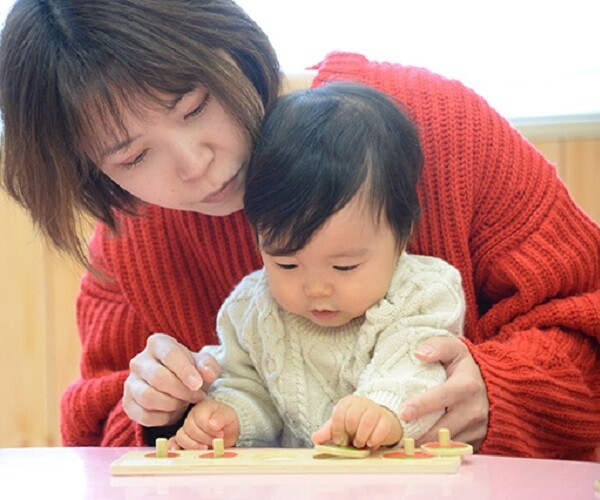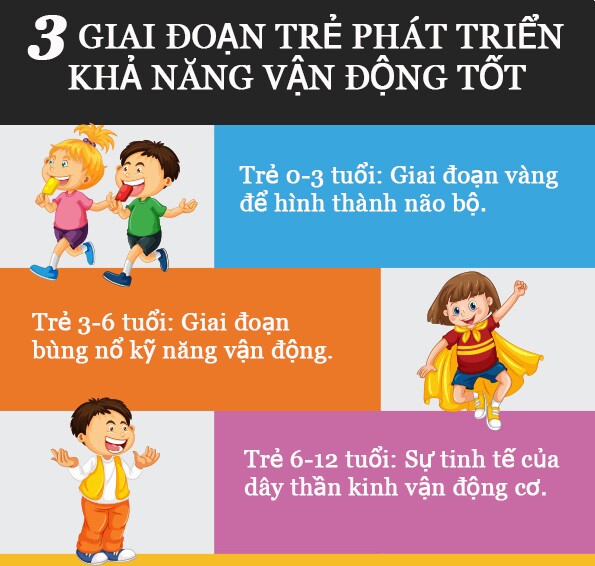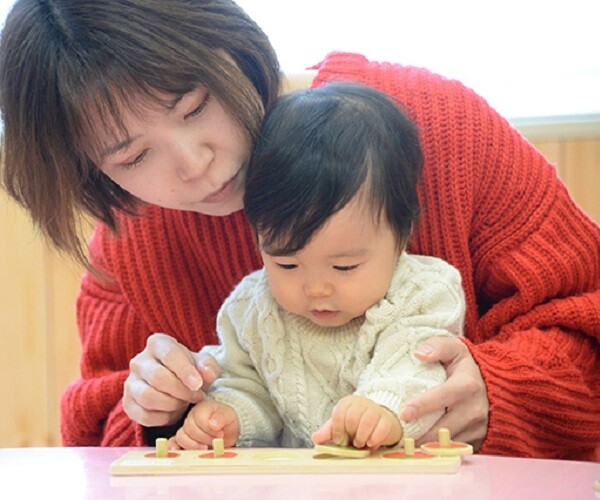While nutrition plays a crucial role in supporting brain development, there are many other equally important factors.
Experts list two things that can help children build an efficient and focused brain, considered “brain boosters.”


Exercise is the Best “Medicine” for Brain Development
In ancient times, hunter-gatherers would run 50-100 km every day chasing prey until exhaustion. And no matter how far they ventured, they always found their way back home.
This is because running rewards the brain by releasing dopamine, activating the brain’s alert system, boosting energy supply, and enabling memory retention of the way home and dangerous places.
In other words, our ancestors’ neural patterns during hunting were imprinted in our genes long ago. The need for exercise is innate, whether we like it or not.
Many of us have likely experienced this before—after exercising, our bodies feel tired, but our minds feel particularly refreshed. This is because exercise prompts the brain to release a surge of dopamine, serotonin, and norepinephrine—neurotransmitters that activate the energy system and induce a sense of rejuvenation.

Exercise makes us feel refreshed, producing more “brain fertilizer” called BDNF in the hippocampus—the brain’s memory center. BDNF is primarily responsible for establishing and maintaining neural connections and can promote neuron growth and synapse formation.
BDNF levels directly impact children’s learning efficiency. Professor John J. Ratey of Harvard University mentions in his book, “Spark: The Revolutionary New Science of Exercise and the Brain,” that vocabulary learning rates post-exercise are 20% higher than pre-exercise rates.
It’s evident that proper exercise promotes brain development, supporting both physical and mental growth. Thus, schools incorporate daily physical education classes for students.
Well-developed neural pathways have a relatively low threshold and are easy to activate, so it’s best to start exercising from a young age. Experts share some exercise ideas for children based on their age groups.
Ages 0-3: The Golden Period for Brain Development
The primary focus during this stage is integrating primitive reflexes and establishing fundamental movement patterns. Parents can enhance their children’s gross motor skills through movements such as rolling, sitting, crawling, walking, running, jumping, and kicking.
Before a child learns to walk, encourage passive exercises and daily massages. From 8 to 18 months, when babies start crawling, create a cardboard box and soft cushion “maze tunnel” to activate large muscle groups in their bodies.
Once they can walk and run, take them to a park to run, jump, climb stairs, catch and throw balls, or play bubble chase on the beach.

Regular physical activity supports children’s learning and physical and mental development.
Ages 3-6: The Peak of Motor Skill Development
These three years mark the pinnacle of development for the motor cortex, the “movement brain.” The more diverse sports experiences children have during this time, the more their neural pathways develop, leading to smoother signal transmission.
Thus, starting at age three, structured exercise routines can be introduced. Climbing, jumping, running, swimming, basketball, soccer (after age four), skipping rope, and speed walking (after age five) are the most suitable activities for this age group.
Ages 6-12: Refinement of Motor Nerve Coordination
By this stage, a child’s various organs, including muscles and bones, have matured. The movements experienced in the first two stages are now ingrained in the cerebellum and basal ganglia, forming procedural memory.
The key to successful exercise at this age is persistence. Parents should encourage their children to explore different sports to find one they can stick with long-term. Around age nine, a competitive spirit often emerges. If a child excels in a particular sport, they can consider pursuing a professional athletic path.

Chores are a Natural Brain-Boosting Activity
Nowadays, many families revolve solely around their children, leaving little opportunity for them to contribute to household chores.
According to Yang Xia, a psychologist at the Peking Union Medical College, in her 30 years of practice, she has treated over ten children with focus issues and discovered that those who were sluggish in their work, lacked concentration, and disliked studying often did very few chores and lacked sufficient physical activity.
Research has found that preschoolers who do chores three times a week have a 15% higher cortical thickness (the area responsible for higher-level thinking) than their peers. After tidying up their desks for eight weeks, the rate of errors in continuous attention tests decreased by 37%.
In other words, doing chores can also promote brain development in children.
Take the example of sweeping the floor. A child struggling to sweep for the first time will intently watch the broom. Although the frontal lobe continuously sends instructions to the vast neural network, attempting to coordinate movements, their hands remain uncoordinated and prone to mistakes.
By the fifth attempt, they can sweep, albeit not skillfully. But by the tenth or twentieth time, they can sweep while humming a tune, and the task no longer feels challenging.

Doing chores can help children’s brains develop.
During this repetitive learning process, the cerebellum continuously collects and optimizes motor control parameters, which are then encapsulated and stored in the basal ganglia. Once procedural memory is formed, the child unlocks the skill of floor-sweeping. The next time, sweeping will be as effortless as driving a car on autopilot.
Why do children who regularly help with chores before starting school—such as washing vegetables, rinsing dishes, setting the table, or folding blankets—quickly become adept at more complex tasks when they learn to write?
Because with each clumsy attempt at a chore, their brains continuously improve, and over time, they can seamlessly transfer skills and learn new things quickly and naturally.
As child psychologist Jean Piaget said, children’s brains first develop the ability to think through movement.
Parents can refer to these “chore prescriptions” to help their children build a “smart brain.”
For instance, allow children aged two to four to collect the family’s socks and play a matching game. Once they’ve mastered this, introduce a new challenge. Choose a day of the week for them to be the “chore director.” Let them assign tasks to family members, then inspect the results and summarize improvements.
The more active children are, the smarter their brains become, leading to healthier bodies and improved focus.





































